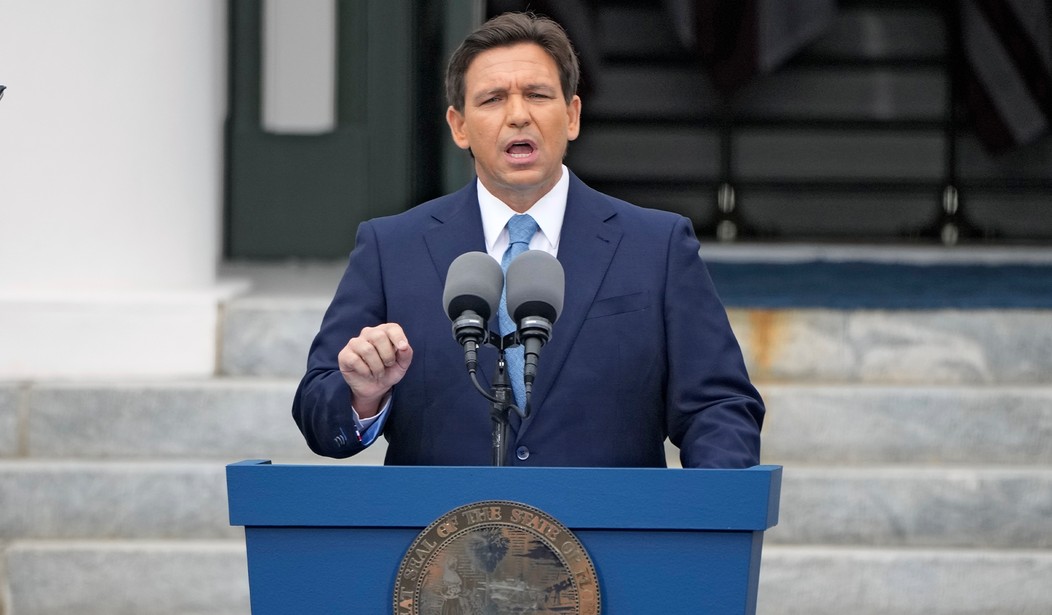As lawmakers in D.C. continue their stellar record of commitment to solving absolutely zero of our most pressing issues (national debt, entitlement reform, border security, just to name a few), a focus is increasingly being placed on the impact state legislatures across the country have on policy. In many cases part-time and term limited with a mandate only to pass a balanced budget, state policymakers consistently have a more quantifiable impact on their residents in one year than Congress has in a dozen. This year, policymakers from Utah to Virginia to Iowa have taken up the mantel of leadership in addressing healthcare, education, immigration, and a host of other issues - proving the wisdom of the Founding Fathers that “laboratories of democracy” create the best opportunity for success in our 236-year experiment in self-government. And while there have been strides made in many state capitols this year, one stands above the rest.
Florida’s Legislative session, which finished on May 5, has been the single most transformational session in the last 100 years…IN ANY STATE.
Yes, that sounds like hyperbole. No, it is not.
Over a period of 60 days, 120 members of the Florida House and 40 members of the Florida Senate set the Sunshine State apart from every other state in so many respects that an analysis of it should make its way into political science books.
Before assessing the how, consider the what.
In the 2023 session, Florida lawmakers sent to Governor Ron DeSantis’ desk: universal school choice for the more than three million students, sweeping tort reform to combat Florida’s frivolous litigation environment, a market-centered policy for tackling workforce and affordable housing, a total ban on ESG (environmental/social/
Recommended
While JMI does not engage on social or second amendment issues, policies like permitless carry of firearms, a crackdown on illegal immigration, a ban on elective abortions after six weeks, an expansion of the parents’ rights in education law, and a ban on gender transition efforts for children, all coalesce into a conservative agenda unlike anything else.
To call this an agenda of conservative principles would be like calling the Apollo mission a quick flight. Any two or three of these policy reforms would make a state legislative session a tremendous success. State lawmakers in Florida accomplished all of them, and then some.
The list above, which only articulates a small portion of the policy wins, is a blueprint for conservative governance unlike any other state in the country, in the last 100 years. Full stop.
The question at hand is – how? How did a state that not long ago was deciding state-wide races by less than one percent suddenly put the conservative agenda on afterburners? While it may seem like an overnight success, it has been a quarter-century in the making.
In 1998, Jeb Bush kicked off a streak of Republican governors elected in the Sunshine State. His commitment to working with a new Republican majority in the legislature began a commitment to both fiscal sanity and education liberty. On the fiscal front, they held the line on the growth of state government. Today, Florida’s $117 billion annual budget (for 22.5 million residents) is less than half of New York’s (for 19 million residents). This ensures that economic activity is concentrated in the private market as opposed to government. In addition, enacting Florida’s tax credit scholarship program initiated the path to the present universal education savings account for every single one of the state’s three million students.
The 2010 election of Rick Scott (amid the housing crisis) ushered a full-force assault on the recession. A promise to create 700,000 new jobs in his first term was knocked out of the park by year two. Unemployment plummeted from a high of over 12 percent to a low of 3.5 percent by the end of his second term.
Nevertheless, even in the face of this economic success, Ron DeSantis was elected in 2018 by fewer than 35,000 votes.
In 2019, Republicans held a thin three-seat majority in the state Senate, and a 13-seat majority in the state House. Those majorities, especially in the Senate, kept many conservative policies at bay. Losing just three moderates in the Senate killed a bill.
Enter Covid. Governor DeSantis’ approach to the pandemic, his commitment to opening the state’s economy back up and his unabashed conviction to conservative principles made him the benchmark of success (in contrast to Governors like Gavin Newsome, Andrew Cuomo, and Gretchen Whitmer). Over the succeeding years, “blue state political refugees” relocated in droves. Florida has led the U.S. in in-migration since 2019.
The migration wave, coupled with an opposition party lacking any substance, propelled DeSantis to a 2022 reelection by 1.5 million votes (20 points) with 62 of the state’s 67 counties going red. Just as notable but less reported, voters also rewarded Republicans down ballot, sending supermajorities to both chambers of the legislature – 85 of 120 in the House and 28 of 40 in the Senate.
These supermajorities set the stage for a legislative session in 2023 unlike anything seen in any state capitol in the last century.
As important as the what and the how, is the who. A governor, even one as popular as Ron DeSantis, is only able to enact legislation sent by policymakers. That distinction goes to House Speaker Paul Renner, Senate President Kathleen Passidomo, and the leaders they designated and trusted with transformational pieces of legislation. Their commitment to movement conservatism manifesting in substantive policy, along with a tactical strategy for the brief legislative window achieved monumental results, and it is nothing short of remarkable.
It is unlikely that legislators like Kaylee Tuck, Bob Rommel, Alexis Calatayud, Blaise Ingoglia, Tommy Gregory, and so many others will garner the national attention that Florida’s Governor does. Nevertheless, the conservative movement should remember them as leaders who solidified the 2023 Florida legislative session as the single most transformational of any state in the last 100 years.
Dr. Robert McClure is President & CEO of The James Madison Institute in Tallahassee, Florida.

























Join the conversation as a VIP Member